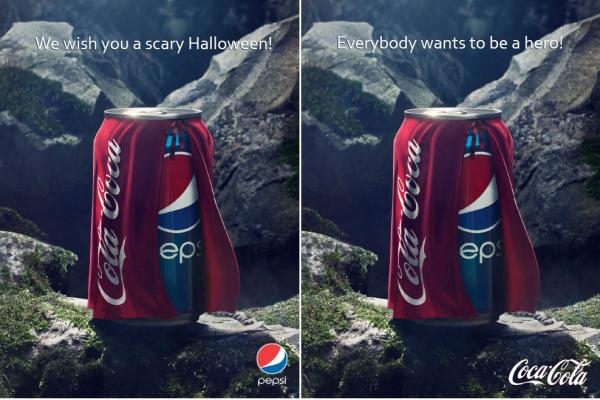How attractive are your product descriptions?
Your response to that question determines the overall success of your sales. When you’re trying to sell a product, the potential buyer wants to know what it is. They want to find out everything about its features, but they are not ready to waste time on boring text. They expect to be informed and entertained at the same time.
But how do you achieve that effect? How do you write eCommerce product descriptions that skyrocket your sales? Here’re a few tips that work:

Identify the Buyer Persona
Everything starts from here. A buyer persona is an imaginary average customer of your products. Ideally, you have developed your offer around them, analyzed their needs and issues and came up with solutions. Now, you’ll use the same buyer persona to the product’s description for them.
Once you know who your buyer persona is, answer these questions:
- What makes them laugh?
- What makes them feel something?
- What manner of expression would they prefer?
- What’s their level of education?
- How can your product solve the challenges they face?
These answers will help you create customer-oriented product descriptions. The goal: for your average user to get the exact type of information they need in a format they prefer.
Emphasize the Advantages
Any potential buyer will want to know about the product’s features and specifications. However, they don’t want a dry description. They want to know what makes your product better than what the competition is offering.

Source: Cleriti
This doesn’t mean you should write the direct advantages. You don’t see Coca-Cola directly mentioning Pepsi when they are trying to show they are better. But you sense the comparison, right?
Highlight the benefits in a subtle way. Is your product cheaper? Is it more cost-effective? Is the quality better? Is it cooler? Let them know.

Make It Readable
Here are two examples of descriptions for the same product – apple juice:
1.) Cold Pressed Apple Juice
Our customers have recognized the superb quality of this all-natural apple juice. Each package contains 12 juicy, entirely organic apples. It does not contain any sweeteners. Each 150 ml serving contains one portion of fruit. The juice has been cold-pressed to preserve the most beneficial nutrients.
2.) Cold Pressed Apple Juice
- The most popular choice
- 12 organic apples in each package
- All natural
- Never sweetened
- One portion of fruit per 150ml serving
Which one of these descriptions caught your eye? For most people, it would be the second one. Bullets, short sentences, and simplicity – that always wins. Scannable descriptions get attention. When website visitors see chunks of text, on the other hand, they usually just glance over them.
Amplify the Effect with Social Proof
Adding true testimonials to product descriptions is a nice strategy for showing social proof. When someone wants to buy a lipstick, for example, they wonder how other users were satisfied by its quality, color, and longevity. That’s exactly why brands like Sephora feature testimonials for each product – they understand the effect of social proof.
You can also allow the buyers to leave a review. If you’re providing high-quality products and services, there’s nothing scary about getting reviews. You can sneak the best ones into the product descriptions themselves. That strategy will encourage the readers to check out the remaining reviews. The more positive experience they see about your product, the more convinced they will be to buy it.

Rely on Storytelling
Check out this description for a bottle of wine: “Bordeaux has much to offer the wine lover – impressive reds, vibrant whites, even sparklers. In Sauternes, they produce the world’s most highly regarded dessert wines…”
You see? You get a brief story about the region where this particular wine is produced. This is a great method for writing captivating descriptions. If, for example, you’re selling soap, write about the way the most important ingredient has been used even in ancient times.
Stories are great because people like reading them. They are not like boring descriptions of features. They have a flow that grabs and holds our attention.
Edit the Descriptions to Perfection
Be honest: what do you think about descriptions with obvious flaws in the content? If the seller is not serious about polishing out the content of their website, how can you expect a high-quality product? You must not allow this to happen.
When you have your descriptions, it’s important to bring them as close to perfection as possible. Here are some tools you can use:
- Best Essays – an online editing service. You can hire real editors with experience in eCommerce to improve the quality and appeal of your product descriptions.
- Grammarly – an automated online tool that identifies grammar, spelling, and syntax issues. It doesn’t replace a real editor, but it’s better than what you get from MS Word.
- Power Thesaurus – a great tool that helps you get rid of repetitiveness. Search for alternatives to your habit words, so you’ll make the descriptions more vibrant and less boring.
Keep Trying and You’ll Get Better at Writing Product Descriptions
There’s a whole science behind amazing product descriptions. Science? Yes… since you have to understand the psychology behind your persona’s purchasing decisions. Then, you have to test and evaluate different methods that would attract them.
It sounds complicated. It is. However, it’s also a fun process of discovering what your target audience wants and delivering it to them. You’ll be getting better at writing product descriptions simply because you keep trying. At one point or another, you’ll notice the effect these efforts have on your sales. Why not start today?
Let us know if you have product description tips in the comments below, or tweet us @pixcphotos!
Author Bio
Karen Dikson is a marketing expert and entrepreneur from New Jersey. She is an intuitive and creative thinker who is able to connect various thoughts into a single theme. Karen loves to stay up-to-date on the latest digital trends, and her work has been published on HuffPost and other business resources. Connect with Karen on Twitter.









